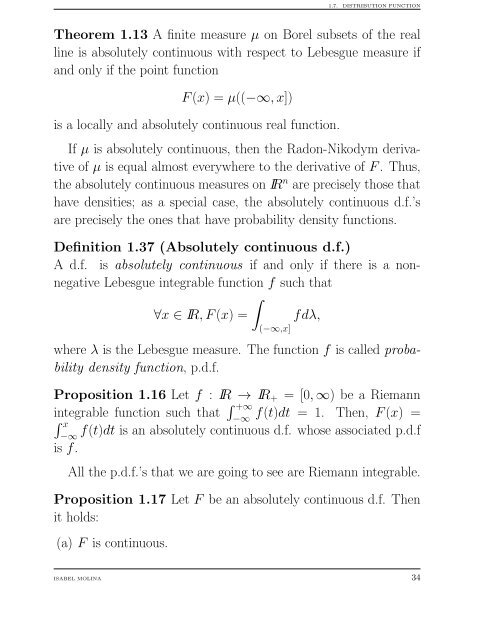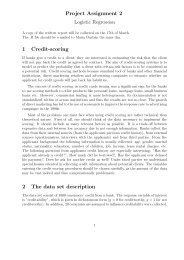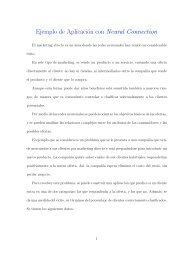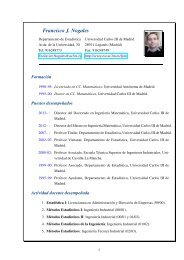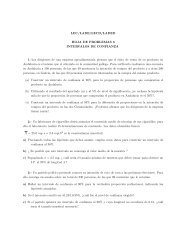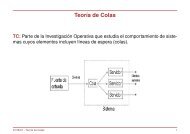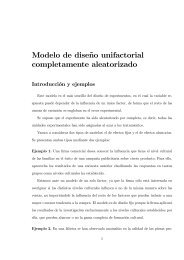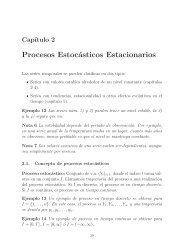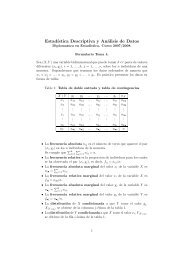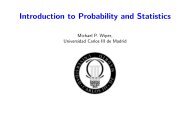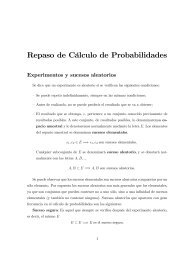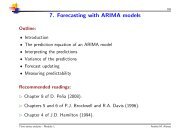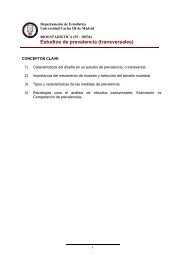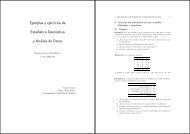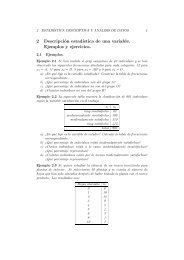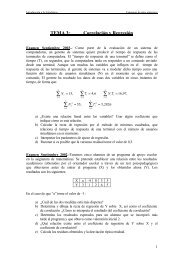Slides Chapter 1. Measure Theory and Probability
Slides Chapter 1. Measure Theory and Probability
Slides Chapter 1. Measure Theory and Probability
Create successful ePaper yourself
Turn your PDF publications into a flip-book with our unique Google optimized e-Paper software.
<strong>1.</strong>7. DISTRIBUTION FUNCTION<br />
Theorem <strong>1.</strong>13 A finite measure µ on Borel subsets of the real<br />
line is absolutely continuous with respect to Lebesgue measure if<br />
<strong>and</strong> only if the point function<br />
F(x) = µ((−∞,x])<br />
is a locally <strong>and</strong> absolutely continuous real function.<br />
If µ is absolutely continuous, then the Radon-Nikodym derivative<br />
of µ is equal almost everywhere to the derivative of F. Thus,<br />
the absolutely continuous measures on IR n are precisely those that<br />
have densities; as a special case, the absolutely continuous d.f.’s<br />
are precisely the ones that have probability density functions.<br />
Definition <strong>1.</strong>37 (Absolutely continuous d.f.)<br />
A d.f. is absolutely continuous if <strong>and</strong> only if there is a nonnegative<br />
Lebesgue integrable function f such that<br />
∫<br />
∀x ∈ IR,F(x) = fdλ,<br />
(−∞,x]<br />
where λ is the Lebesgue measure. The function f is called probability<br />
density function, p.d.f.<br />
Proposition <strong>1.</strong>16 Let f : IR → IR + = [0,∞) be a Riemann<br />
integrable function such that ∫ +∞<br />
∫ −∞<br />
f(t)dt = <strong>1.</strong> Then, F(x) =<br />
x<br />
−∞f(t)dt is an absolutely continuous d.f. whose associated p.d.f<br />
is f.<br />
All the p.d.f.’s that we are going to see are Riemann integrable.<br />
Proposition <strong>1.</strong>17 Let F be an absolutely continuous d.f. Then<br />
it holds:<br />
(a) F is continuous.<br />
ISABEL MOLINA 34


